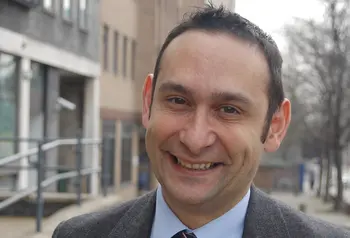Recognising access in its many forms

Page last updated: 12 July 2022
Tell us about your projects
Jonathan Mace, Head of Communities at MHA:
MHA is the largest charitable provider of care and support in the UK. The Wilderness is our National Lottery funded project at our Hall Grange care home in Croydon.
Access doesn’t just mean physical access, it’s so much more than that.
It’s based at a seven acre garden that was created over 100 years ago in the style of a natural heathland. We brought this overgrown space back to life and made it accessible for different groups of people. The benefit the garden has had on their physical and mental health has been remarkable.
Heather Brown, Deputy CEO at Living Options Devon:
Living Options is a Devon-based charity operating across the south west, with around 7,500 beneficiaries. We provide a range of services for people with disabilities and train other organisations on accessibility.
Heritage Ability was our four-year project funded by The National Lottery Heritage Fund. It focused on opening up 23 heritage sites that disabled people wouldn’t usually visit, including nature reserves and country parks.
What range of accessibility requirements do you see?
Heather:
Access doesn’t just mean physical access, it’s so much more than that. We work with people who have non-physical disabilities such as autism, learning disabilities and people who are Deaf.
A phrase we use that comes to mind is ‘do nothing about us without us’. It’s so important to learn from disabled people themselves and understand differing needs.
For example, we worked with the Botallack mine in Cornwall to produce a British Sign Language film guide about the history of the site, available on a tablet for Deaf visitors. We had a Deaf woman visit the site whose relatives were tin miners, and she got to find out all about the heritage of the mine using the guide.
British Sign Language was her first language. People often don’t realise that English is a second, and often less familiar, language for many Deaf people.
Jonathan:
Accessibility means many things for us. We work with people who have disabilities and a large cohort of users who have challenges around frailty, cognitive ability and those who are living with dementia.
For example, we consider how readable the text on our information panels is at a range of heights – including wheelchair level – and we also take into account visual impairments.
How has digital played a part?
Heather:
Loneliness has been a massive issue for lots of our beneficiaries who would normally be out enjoying these sites and places with their families.
The pandemic has highlighted the importance of digital and the part it plays in keeping heritage accessible.
Nature has such a positive impact on wellbeing. During the first lockdown my colleague Neil, who runs our all-terrain mobility scooter scheme – known as 'trampers' – had the idea of creating a podcast to bring the great outdoors to people’s homes. It’s called Inside Out and talks listeners through the experience of being at one of our sites when they are not able to visit.

For Living Options Devon the pandemic has highlighted the importance of digital and the part it plays in keeping heritage accessible – although people have to be aware of the issues around digital accessibility to make sure disabled people are included.
Jonathan:
Digital has also taken on a greater importance for us during this time. We’ve used social media to interact with the wider community – Facebook has worked particularly well.
We’ve continued to work with the natural resources in the garden to make people aware of what they can access on their doorstep. Our Activity Coordinator Marco Galli recently recorded a fox on our site, so we shared a video at ‘fox eye’ level!
What advice would you give heritage organisations?
Heather:
We’re an accessibility organisation but we don’t know everything about access. It’s important that we keep learning from and supporting each other.
Our grant from The National Lottery Heritage Fund enabled us to work with 23 sites, but if those sites would consider budget for access in their projects then even more people would benefit. The greater good would then be for heritage organisations to teach others what they have learned.
Jonathan:
A phrase we use that comes to mind is ‘do nothing about us without us’. It’s so important to learn from disabled people themselves and understand differing needs.
It’s important that we keep learning from and supporting each other.
The three things that give our users the confidence to come outdoors are: having somewhere to sit, somewhere to have a cup of tea and having toilets on hand. If we didn’t talk to them we wouldn’t know that. You often only need to make small adjustments to make projects more open and accessible.
Our commitment
Heritage can play an important role in helping disabled people build connections and a sense of belonging.
Every project we fund must achieve the inclusion outcome: a wider range of people will be involved with heritage. Heritage with inclusion at its heart is incredibly powerful in bringing people together and creating a fairer society.




